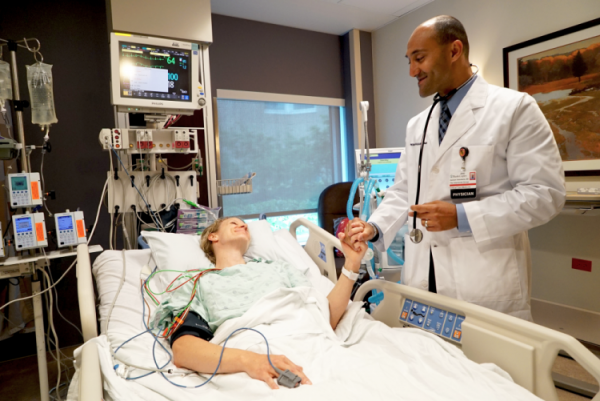February 20, 2020
Improving End of Life Care in the ICU

One in five people who die in the United States admit to an ICU before their death, according to a recent study published in the JAMA Open Network describing the state of end-of-life care in U.S. intensive care units (ICU).
The study found a vast variability in end-of-life care in the ICU. About 25% of patients experienced delirium on their last day of life, while 40% of patients who died did not receive an assessment for delirium. 22% of ICUs in this study cohort had high rates of invasive therapies at the time of death, including CPR and mechanical ventilation. Surprisingly, 40% of patients who died had advanced directive discussions and did not receive any offer of spiritual support during their stay in the ICU. Even though 80.4% of the ICUs studied have open visitation policies, one in four patients still experienced pain on their last day of life. Additionally, less than one-third of ICUs studied provides structured opportunities for clinicians to reflect on caring for dying patients.
This data is an honest reflection of the current state of affairs, showing that clinicians can improve end-of-life care in the ICU. Sound Critical Care will see 1% of every ICU patient in the U.S., making these findings very motivating. The authors of the study write that many of these findings are “hypothesis-generating,” leading to additional questions that will inspire further research.
The fact that many patients experience pain and delirium at the time of their death is distressing, especially in a surgical ICU or an ICU with open visitation policies. Some families want to be with their loved ones as they die, often restricting the amount of anxiolytic and analgesic medications a patient obtains to relieve suffering. This study has many takeaways regarding end-of-life care clinicians provide.
Clinicians can implement these tips to provide better patient care:
Ask if they have an advanced directive.
If a patient has an advanced directive, the healthcare team should provide care consistent with the patient’s values and wishes. If they do not have an advanced directive, clinicians should discuss goals of care with the patient to ensure they receive their desired care. To help, clinicians can ask the question, “If your loved one was standing at the door and seeing themselves, what would they say?”
Offer spiritual support.
Critical illness is a frightening experience, especially for family members watching their loved ones approach the brink of death in the blink of an eye. The authors of the study mention, “insufficient spiritual support is associated with increased symptoms of posttraumatic stress disorder for surrogates of patients in the ICU.” Religious and spiritual beliefs and practice play a significant role in times of crisis.
Be vigilant about treating pain and delirium.
Educate family members that if clinicians are managing the patient’s pain and delirium, the patient may be less able to interact with them.
Lookout for clinician moral distress.
Burnout is a healthcare crisis, impacting both the clinician and the patient. There is a need for more opportunities to reflect on the care of dying patients via methods like support groups, or team debriefs after traumatic episodes like cardiac arrest. Many Sound Critical Care colleagues do a “Celebration of Life” event, where patients graduate from the ICU return to share their stories and experiences with the clinicians who cared for them. These Celebration of Life events are very successful in every institution hosting them, which is why Sound is expanding such programs to ICUs across the country, including my own.
Death will always play a role in the experience of caring for a critically ill patient. Clinicians can do better by making sure they care in a manner consistent with the patient’s wishes. If a patient is dying, clinicians need to ensure the patient passes in comfort, with dignity, and without pain or suffocation. It is the very least clinicians can do for patients.
